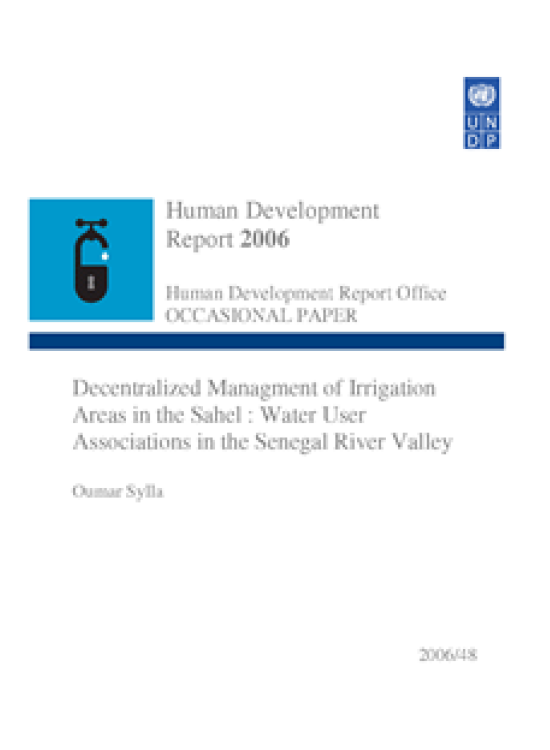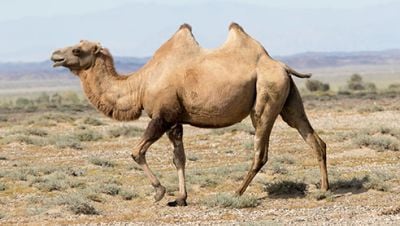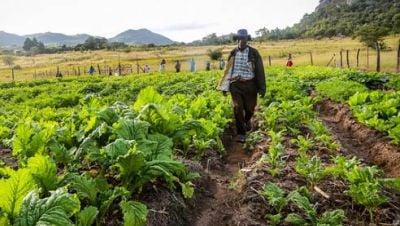Decentralized Managment of Irrigation Areas in the Sahel
Water User Associations in the Senegal River Valley

Download Report by Language
Document
syllaoumar.pdf
(1.44 MB)
Citation
Sylla, Oumar. 2006. Decentralized Managment of Irrigation Areas in the Sahel: Water User Associations in the Senegal River Valley. New York.
Decentralized Managment of Irrigation Areas in the Sahel
Water User Associations in the Senegal River Valley
Posted on: January 01, 2006
In this decade irrigation has been the central focus of programmes seeking to reduce food shortages. In the Sahel, a victim of long cycles of drought, this interest in irrigation has been rekindled by the increased scarcity of the rainfall that underpins agricultural production. Population growth has also exerted pressure on water resources because of greater human needs for drinking water and water for production (Niasse, 2004). All the Sahel countries now agree on the need to develop irrigated farming in order to reduce dependence on irregular rainfall and improve food production (Le Monde, August 2005). Given the precarious nature of rain-fed agriculture, the will to develop irrigated farming within the countries of the Sahel has led to many institutional innovations. Several policies and programmes have been formulated in search of a framework capable of fostering the development of agriculture in general and irrigated production in particular (Ostrom, 1992). The structural adjustment programmes begun in the 1980s in most Sahel countries represent the starting point for a new perspective on agriculture (Le Roy, 1998). These programmes advocated a withdrawal by the State from the production sector to give producers greater responsibility. The State abandoned the production process and confined itself to a supervisory or advisory role, which in Senegal and other Sahel countries has given rise to new agricultural policies.

